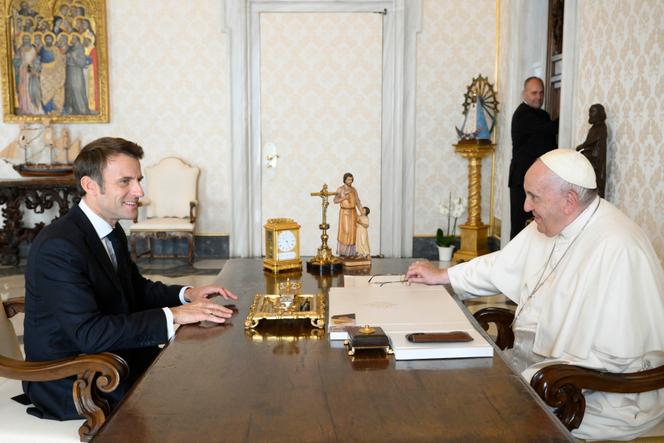


A majestic imperial residence, built on the orders of Napoleon III for Empress Eugénie, the Palais du Pharo offers a breathtaking view of Marseille's port. It is there, in this monument symbolizing the power of the French state in the 19th century, that Pope Francis will conclude his visit to the Mediterranean city with a speech on Saturday, September 23.
The country's second-largest city, with an identity inseparable from the waves of immigration that have shaped it, Marseille will be the setting of Pope Francis's second trip to France on Friday and Saturday. In 2014, he went to Strasbourg for a visit to the European Parliament, conceived as a meeting with the EU member states, rather than specifically with France.
The logic, this time, remains the same. "I'll go to Marseille, but not to France," Pope Francis openly declared on the plane back from the World Youth Days in Lisbon in early August, before adding that he had nothing against France.
The head of the Catholic Church has never made any secret of the fact that Europe is not his priority. Focusing on the marginalised, he has made Asia, Africa, and smaller, poorer countries and those at war his major preoccupations. He has visited Canada to acknowledge the suffering of indigenous peoples, the Democratic Republic of Congo and South Sudan to call for an end to war, and Mongolia to pay tribute to a minority church.
In responding to the invitation to visit this multicultural city by the sea, Pope Francis is, above all, coming to talk about migrants, a subject particularly close to his heart. This theme has marked his 10-year pontificate, which has seen him make trips to Greece in December 2021 and to the Italian island of Lampedusa in 2013, just a few months after his election.
"Who is responsible for the blood of these brothers and sisters? No one is. We all answer like this: it's not me, it's probably someone else... We've lost the sense of fraternal responsibility," he said then, referring to "boats that instead of being a path of hope have been a path of death". These words resonate still today on Lampedusa, which over the past year has become the main gateway for migrants seeking to reach Europe. Since January, almost 130,000 people have arrived in Italy by sea, twice as many as at the same time in 2022, and the island is in crisis.
The tragedies are neverending. Whether off Lampedusa in August, or in the Ionian Sea in June, when 79 bodies were recovered, they continue to turn the Mediterranean into "a graveyard," as Francis said in August.
You have 67.8% of this article left to read. The rest is for subscribers only.
